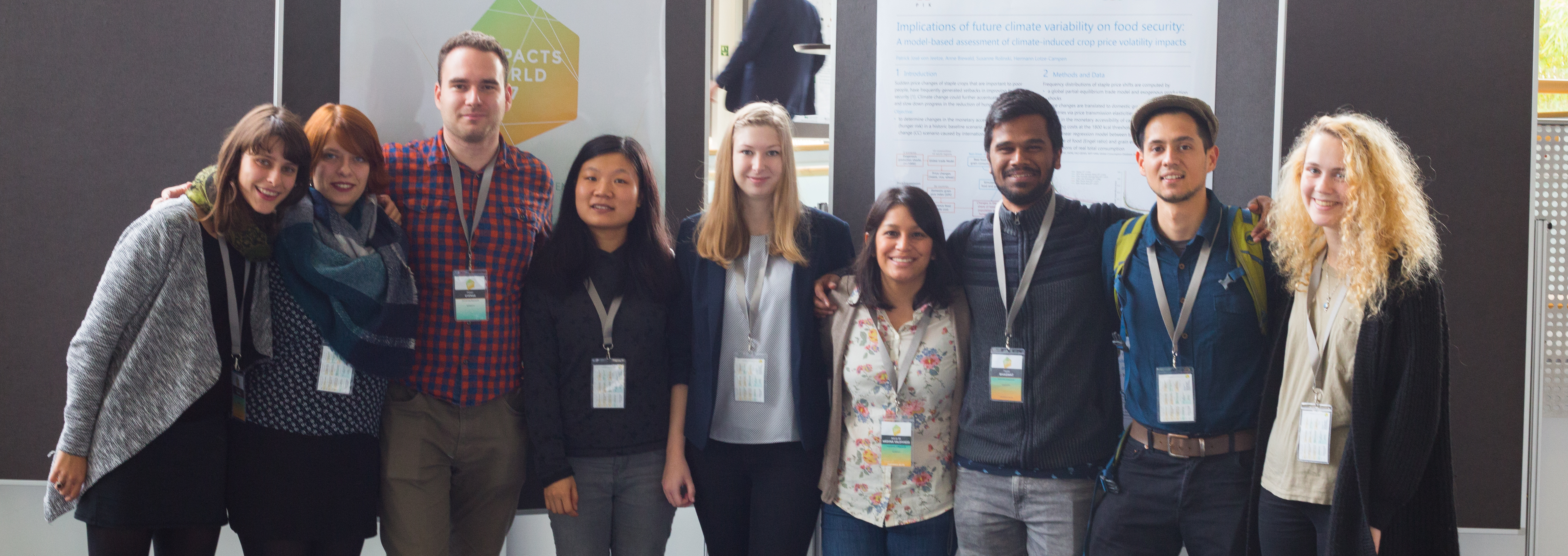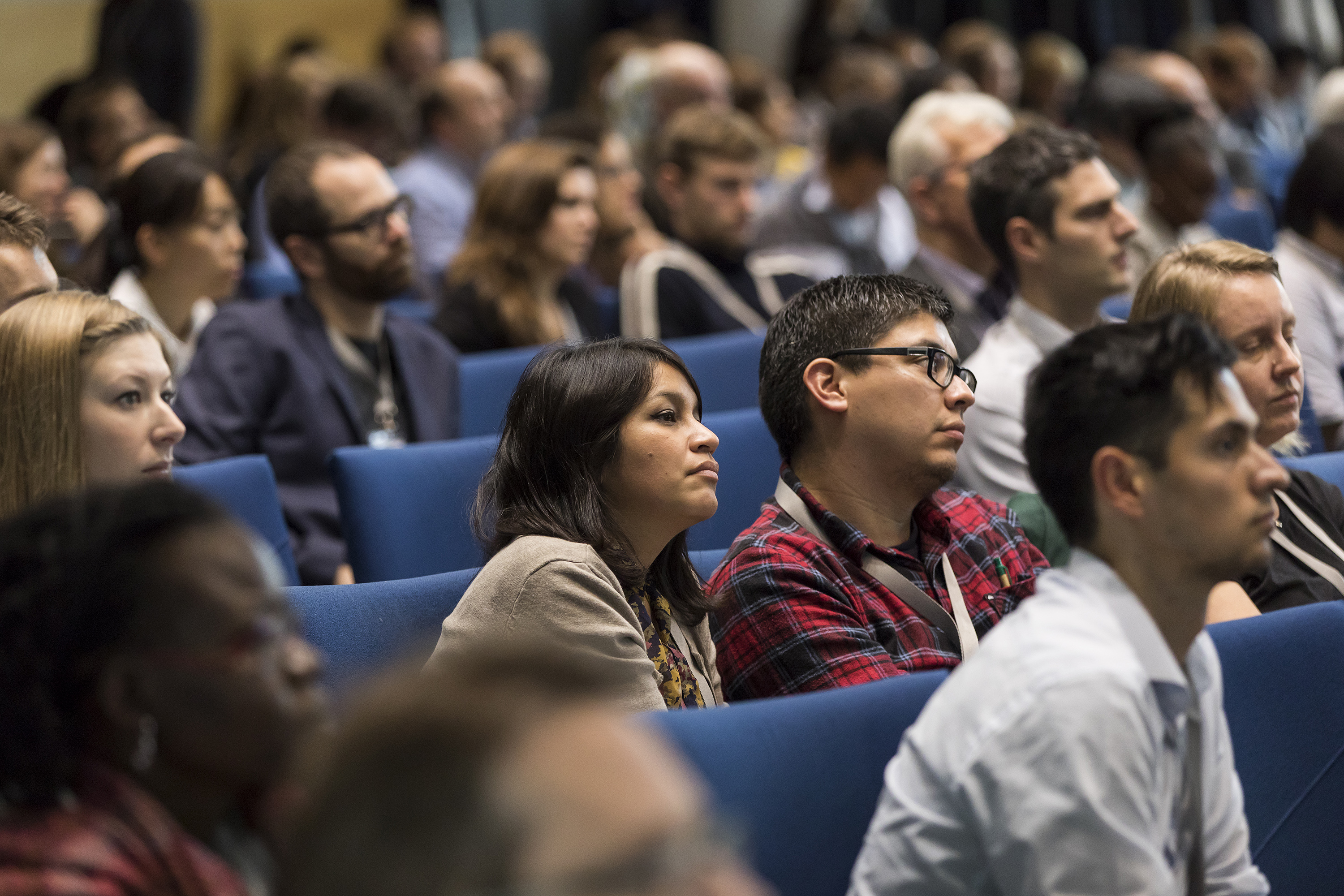By: Katharina Funk, Anna-Lena Hendel, Claudia Steinacker
Too many people buy too many things, with money they have not earned, to impress people they do not like.
– Dr. Maja Göpel
Eleven GCE students participated and volunteered at the Impacts World Conference in Potsdam, Germany on the impacts of Climate Change, here their reflections on Day 3.
The talks of the last conference day at the Impacts World 2017, organized by the Potsdam Institute for Climate Impact Research (PIK), were probably the most inspiring ones, encouraging the audience to engage even more in climate action – by educating the public, informing policy-makers or investigating knowledge gaps in climate impact research.
Prof. Dr. Johan Rockström from the Stockholm Resilience Centre, who invented the Planetary Boundaries Concept, informed the audience about tipping points in the Earth system and advertised for the inclusion of social, ecological and economic dimensions when trying to achieve the Sustainable Development Goals (SDGs). Throughout the conference, many speakers have criticized the current economic system, arguing that the focus on economic growth limits the possibilities to solve global problems.

Dr. Maja Göpel, author of the book The Great Mindshift, outlined how a transformation towards a sustainable future can be achieved – one that would secure the livelihoods and the dignity of the next generations. She explained in more detail that
(…) we need the contribution of everyone for a transformation, for positive narratives, for a strong vision and for the braveness to try things humans have never done before.
If you ask yourself how a positive narrative of combating climate change could look like, think about how many co-benefits a sustainable, green future would provide. Already today, the renewable energy sector in Germany offers more jobs to people than traditional sources of energy. But the vision of such a transformation is much bigger and could also open the door towards greater happiness and more stability. Buying things we don´t need to impress people we don´t like simply doesn’t lead to greater happiness. Would it be better if we consumed less, paid attention towards more life quality, and spent more time doing things that actually make us happy?

How does it come that we know so much and act so little.
–Prof. Dr. David N. Bresch
For us students of Global Change Ecology M.Sc it is frustrating to see, how little we do in times, when climate action is so urgently needed. When we look at ourselves and our daily behavior, the one of our families and friends, of communities, companies and industries, of national and international politics, so much change is needed to reduce our carbon footprint. But the knowledge-behavior gap remains. And time really matters! Statistically everyone needs to half their emissions within a decade.
At the same time, development especially in the economic poor countries is demanded. Within Germany for instance, developments towards a more sustainable vegetarian diet are visible and low prices for renewable energy, which we already see today, will certainly help us. But this is not enough and we need to re-think our consumption, behavior and choices. With this in mind, we leave the Impacts World Conference 2017 after three inspiring days full of talks, workshops and poster sessions and are motivated to convince stakeholders from different sectors at different scales to transform our human activities in a way that we limit global warming to maximum 2°C. Because as we learned, every degree matters!

See previous Articles → Day 1 and Day 2








